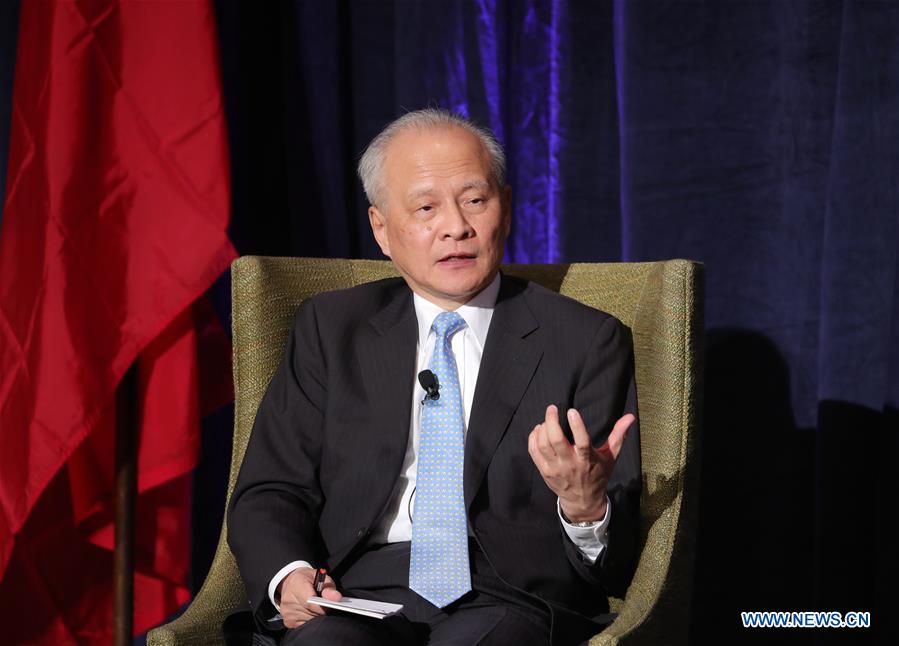
Chinese Ambassador to the United States Cui Tiankai speaks at a dialogue on the 40th anniversary of the establishment of diplomatic relations between China and the U.S. in Grand Rapids, the United States, on Feb. 8, 2019. It is destructive to hold "zero-sum game" mindset in China-U.S. ties and the two sides need to develop even stronger relationship in the future, said Chinese Ambassador to the United States Cui Tiankai here on Friday. (Xinhua/Wang Ping)
GRAND RAPIDS, the United States, Feb. 8 (Xinhua) -- It is destructive to hold "zero-sum game" mindset and overemphasize the aspect of competition in China-U.S. ties, Chinese Ambassador to the United States Cui Tiankai said on Friday.
Cui made the remarks while addressing a public event held by a non-profit organization in the Midwestern U.S. state of Michigan.
The Chinese ambassador noted that some people see competition between the two countries as a "zero-sum" and "winner-takes-all" game, which is "very negative, very destructive" to the bilateral ties.
Pointing out that "competition" originally was a good word instead of a bad one in both Chinese and English languages, Cui said the problem today is "too much emphasis" has been added to it.
The two countries should have competition and at the same time cooperate with each other, the ambassador said. "We should have a win-win result."
The Chinese diplomat also noted that Chinese and U.S. companies should compete as well as cooperate with each other. "The real story in business is not that black-and-white," he said.
More than 400 guests, including former U.S. Under Secretary of State Nicholas Burns, attended the luncheon held by the World Affairs Council of Western Michigan, which aims to provide forums for conversation on international topics.
This year marks the 40th anniversary of the establishment of the China-U.S. diplomatic relations.
Bilateral trade grew from less than 2.5 billion U.S. dollars 40 years ago to over 580 billion dollars in 2017. Over the same period, the stock of two-way investment rose from practically nil to more than 230 billion dollars.















